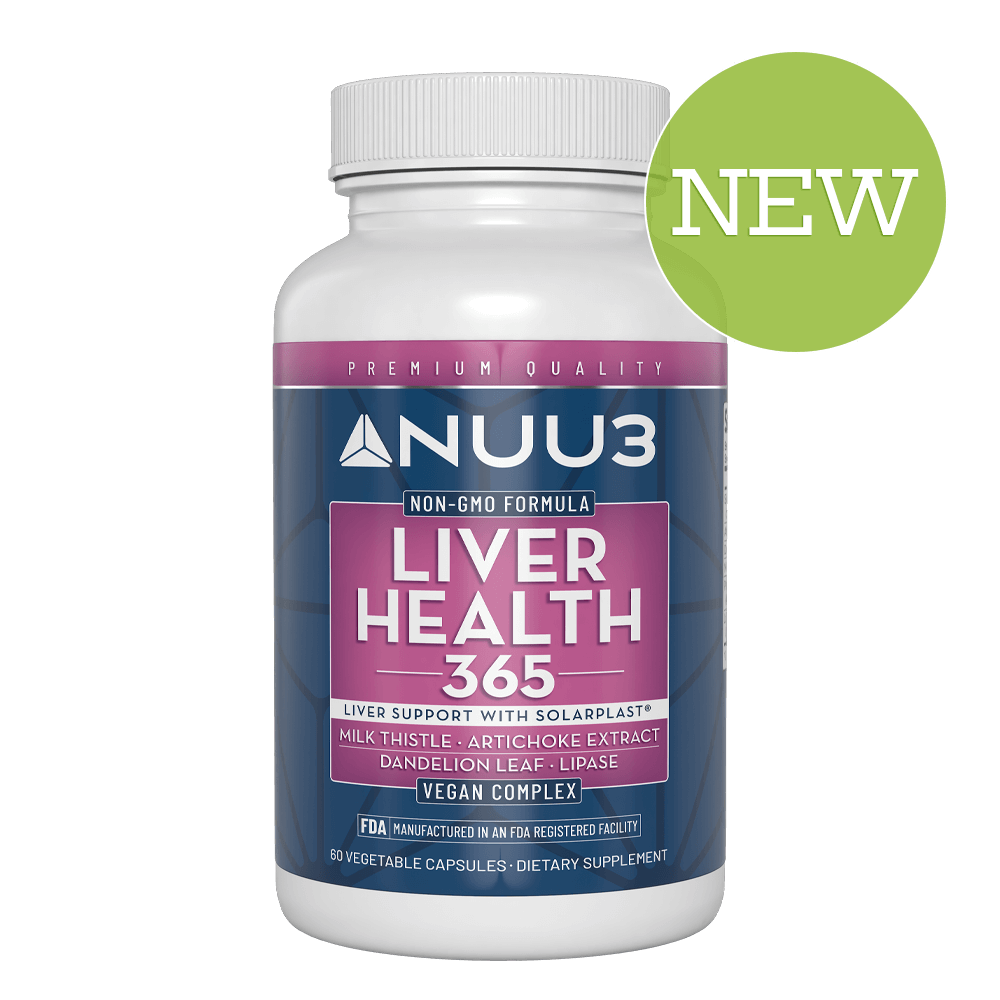While intertwined, anxiety and stress can each have a unique impact on your daily life. This article aims to clarify the difference between stress and anxiety, explore their characteristics, causes, and symptoms, and provide practical strategies for managing their effect on your overall well-being. You may gain insight into fostering a healthier and more balanced mindset by better understanding anxiety vs stress.
What is Anxiety & What is Stress?
Anxiety and stress are common emotional responses that everyone experiences at some point in their lives. Stress is the body's reaction to a perceived threat or demand, which can trigger a "fight or flight" response. It's often a short-term reaction to a specific situation.[1]
On the other hand, anxiety is a more prolonged feeling of unease, worry, or fear that may not always have a specific cause or trigger. It can be a chronic condition affecting daily life and functioning.[2]
What Causes Anxiety vs Stress?
Various factors can contribute to increasing anxiety vs stress, including external life pressures like work deadlines, financial challenges, or relationship issues. Internal factors such as personal expectations, perfectionism, and negative self-talk play a role in increasing stress. Genetics, brain chemistry, and life experiences can also influence an individual's susceptibility to developing anxiety vs stress.[3],[4]
Symptoms of Stress vs. Anxiety
Stress often leads to physical issues that may negatively impact your quality of life. Many symptoms disappear in the short term, but, over time, chronic stress can increase the risk of developing significant health problems such as high blood pressure, heart attack, and premature death.[5] Common symptoms of stress include[6]:
- Tension headaches or migraines
- Trouble sleeping
- Muscle tension
- Feeling tired or lacking energy
- Changes in appetite
- Digestive issues
- Mood swings
- Difficulty concentrating
- Rapid or racing heartbeat
Anxiety may also cause both mental and physical issues. Common symptoms may include:
- Excessive worrying
- Restlessness
- Fatigue
- Difficulty concentrating
- Irritability
- Physical tightness or muscle aches
- Trouble falling or staying asleep
- Rapid or racing heartbeat
- Sweating
- Nausea or upset stomach
It's important to note that these symptoms manifest differently in each person. If you're experiencing any of these issues regularly and they're affecting your daily life, seek support from a healthcare professional who can provide guidance and help you develop effective coping strategies.
Is it Anxiety or Stress That I'm Feeling?
Distinguishing between anxiety vs stress can be challenging as they share common symptoms. While stress is often a response to a specific trigger and subsides once the situation is resolved, anxiety can persist without an apparent cause. Consulting a mental health professional can help you to differentiate between the two.
What is the Difference Between Stress and Anxiety?
The primary difference between anxiety vs stress lies in their duration and underlying causes. Stress is typically a short-lived response to external pressures, while anxiety is a prolonged state of unease that might not have a specific trigger. Stress is often a reaction to a known stressor, whereas anxiety may occur without an apparent reason. Moderate anxiety could also include physical symptoms like a racing heart and dizziness, which are less common with stress.[7]
Can Stress Be a Form of Anxiety?
While stress and anxiety are distinct, there is some interplay between them. Chronic undue stress, left unmanaged, can contribute to the development of an anxiety disorder.[8] Prolonged exposure to stress hormones may alter brain chemistry, leading to an increased risk of anxiety. Addressing stress through healthy coping mechanisms can help mitigate its potential to evolve into anxiety.
How to Manage Stress?
Stress management is not one size fits all, so what works to manage your levels may not be effective for someone else. Try some of these key strategies[9]:
- Prioritize self-care: Engage in activities that bring you joy and relaxation personally.
- Take care of your body: Exercise regularly, maintain a balanced diet, and ensure that you get sufficient sleep.
- Seek support: Share your feelings and concerns with friends and/or professionals.
- Manage screen time: Limit exposure to social media and digital devices.
- Unwind: Dedicate time to hobbies, meditation, or other calming activities.
In addition to these key strategies, you’ll also want your diet to include balanced, nutritious meals. Eat plenty of fruits, vegetables, whole grains, and lean proteins. These provide essential vitamins and minerals that support your body's stress-coping abilities. The Nuu3 Natures Superfuel Gummies contain nine whole greens, fruits, and veggies for those needing an alternative option.
Implementing some or all of these practices may help effectively ease stress[10]' impact on your mind and body to improve mental well-being. Some people will also ease worry and tension with Nuu3 Keep Calm Gummies or Nuu3 Sleep Support Gummies.
How to Manage Anxiety?
Similar to stress, the most effective methods for managing anxiety vary from person to person. Identifying the causes of your anxiety may help significantly in finding the ideal techniques. Try some of these methods to lower anxiety:
- Practice deep breathing: Take deep, relaxed, calming breaths.
- Maintain a balanced diet: Eat nutritious meals to support a healthy body and mind.
- Prioritize sleep: Ensure that you get adequate sleep for optimal emotional resilience.
- Stay active: Exercise regularly to release tension and lessen anxiety.
- Limit alcohol and caffeine: Reduce consumption to minimize anxiety triggers.
In addition, seeking out therapy or counseling from a mental health professional can help you to build valuable tools for understanding and coping with your specific triggers. Ultimately, a combination of these strategies tailored to individual needs may pave the way for effectively managing anxiety.
Frequently Asked Questions
Why did I develop anxiety?
Anxiety can result from many factors including genetics, personality traits, past trauma, and life events. It's important to remember that seeking professional help can assist in understanding and addressing the root causes of your anxiety.
Is stress worse than anxiety?
Stress and anxiety are distinct emotional responses. Stress is often a reaction to external life pressures, whereas anxiety involves persistent worry and unease. While neither is inherently worse, chronic anxiety may have a more lasting negative impact on your mental and physical well-being, causing anxiety headaches and affecting your ability to live your life to the fullest.
How can I relieve stress fast?
You may achieve fast stress relief through deep breathing or progressive muscle relaxation. In addition, consider engaging in a favorite activity, practicing mindfulness, or listening to soothing music. We suggest experimenting with different methods to find the best techniques for you.
Conclusion
Both stress and anxiety can negatively impact you both mentally and physically. Now that you're better understood both, think about taking proactive steps toward managing these challenges and improving your well-being.
Start by identifying your triggers to help determine which treatment techniques resonate with you the most. Remember, there's no one-size-fits-all solution, so don't hesitate to experiment with a variety of methods.
By incorporating the strategies we have recommended into your daily routine you should be better equipped to navigate stress and anxiety, fostering a more balanced and resilient mindset. Don't wait – start your journey towards a healthier and happier you today!
References
1] ↑World Health Organization. Stress. www.who.int. Published February 21, 2023.
2] ↑American Psychiatric Association. Anxiety Disorders. In: Diagnostic and Statistical Manual of Mental Disorders. 5th ed. Text Revision. American Psychiatric Association; 2022: pp. 215-231.
3] ↑Mariotti A. The Effects Of Chronic Stress On Health: New Insights Into The Molecular Mechanisms Of Brain-Body Communication. Future Sci OA. 2015;1(3):FSO23. Published 2015 Nov 1. doi:10.4155/fso.15.2
4] ↑Cleveland Clinic. Anxiety Disorders | Cleveland Clinic. Cleveland Clinic. Published December 17, 2020.
5] ↑Rasheed N. Prolonged Stress Leads to Serious Health Problems: Preventive Approaches. Int J Health Sci (Qassim). 2016;10(1):V-VI.
6] ↑American Psychological Association. (2023, March 8). Stress Effects On The Body.
7] ↑American Psychological Association. What’s the Difference Between Stress and Anxiety? Apa.org. Published February 14, 2022.
8] ↑Chronic Stress Puts Your Health At Risk. Mayo Clinic. Published July 8, 2021.
9] ↑Centers for Disease Control and Prevention. Coping with Stress. www.cdc.gov. Published April 28, 2023.
10] ↑Centers for Disease Control and Prevention. Worry and Anxiety | How Right Now | Centers for Disease Control and Prevention. www.cdc.gov. Published June 13, 2023.









